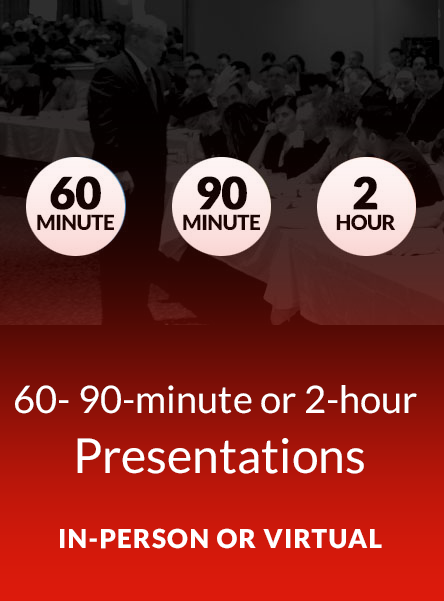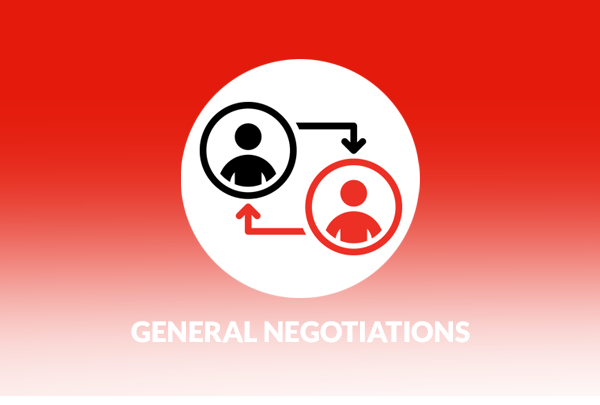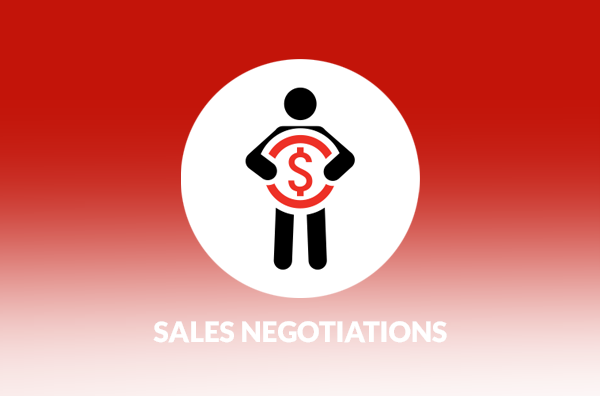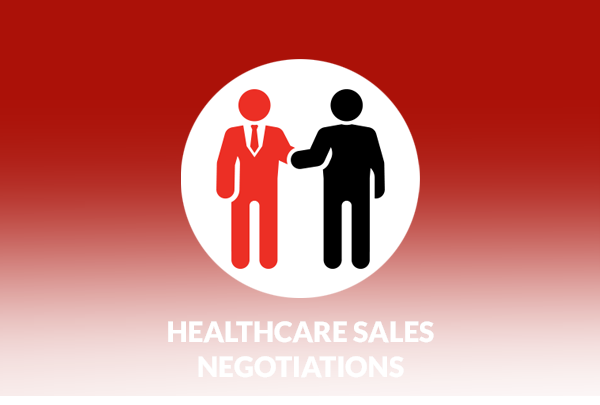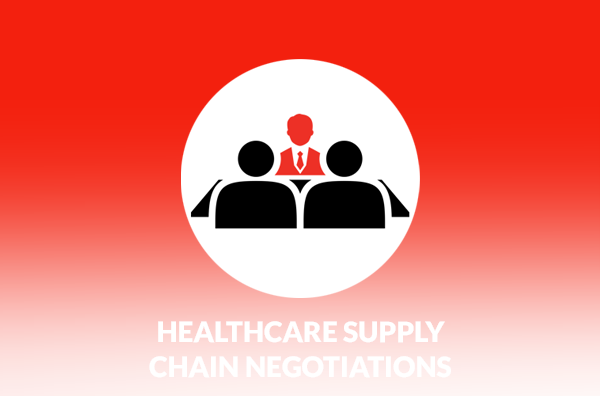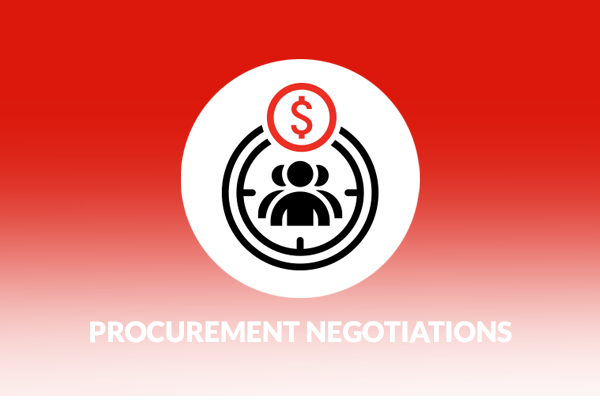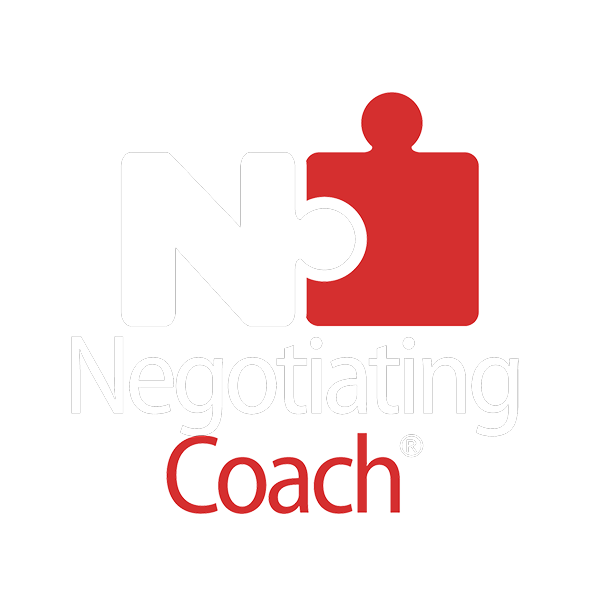PROGRAM DELIVERY
Our Negotiating Skills Training is available in the following options: 60- 90-minute or 2-hour Presentations, Half-day Seminar, One-day Seminar, and Two-day Learning Workshop. » Learn More
WHO WOULD BENEFIT
This impactful learning will benefit people of varying skill and experience levels, who work in different roles throughout the healthcare and life sciences supply chain network.
TAILORED FORMAT
The Negotiating for Success: General Negotiations Program is tailored to suit your organization’s time availability, budget constraints, and skill-building requirements.
As a healthcare industry executive or senior manager with decision-making authority, you’re undoubtedly concerned about skyrocketing labour and non-labour healthcare costs that put your institution’s operating budgets under scrutiny and extreme pressure.
Whether operating in a private for-profit, private not-for-profit, government-funded, or a blended system, the healthcare industry’s many supply chain and operational issues are becoming increasingly complex.
Imagine the financial and non-financial benefits that could be achieved by having personnel in the supply chain, procurement, and contracting become better negotiators. Negotiating is an essential life skill, and it’s a learned skill.
Members of your healthcare organization should be negotiating – or renegotiating all the time – with stakeholders, vendors, professional service firms, co-workers, colleagues, administration, government and community agencies, patients, patient advocacy groups, Medicare, Medicaid, private insurance companies, and charities.
Healthcare supply chain and procurement can no longer be about price/cost containment and management, contracting, and purchase order efficiency. Vendor pricing is only one variable of the total cost. Supply chain and contracting groups must recognize that the products they assess and select have far-reaching effects that can impact revenue, patient satisfaction, and the long-term health of institutions.
The supply chain must be the purveyors of the best value-based products, services, and technology that help hospitals, clinical personnel, and healthcare systems grow through margin enhancement, patient reach, and the advancement of care. The supply chain and hospital operations must be seen by clinicians as strategic partners in cost-effective procurement – without compromising outcomes.
Vendor sales organizations, sales agents, and medical distributors often receive extensive negotiating skills and sales training to protect their company’s high-profit margins. Healthcare providers rarely invest in providing practical negotiating skills training. Being outmaneuvered by more skilled negotiators means your institution is likely paying too much for goods and services, not extracting added value from vendors, and missing out on money-saving or improved value delivery opportunities.
If you’re a senior-level decision-maker in the healthcare supply chain, ask yourself the following questions:
- Do you know if your institution overpays for medical devices, implants, pharmaceuticals, capital equipment, specialized and general supplies, IT-related products, and food services?
- Are medical industry sales representatives, sales agents, and distributors able to influence surgeons, physicians, and medical support staff, and does your institution end up paying premium prices due to influence on physicians from salespeople?
- Is your institution paying a “premium” price for non-differentiated, non-specialized products and services? Are your vendors exploiting the relationships with clinical personnel?
- Are your operating room theatres/suites and storage rooms full of excess vendor-managed inventory?
- How efficient and effective are your institution’s sourcing, purchasing, and vendor management practices?
- Does your institution utilize the most effective RFP/RFI/RFQ, bid/tender process, and practices? Is your current purchasing process so cumbersome, complicated, and confusing that you’re unsure if you get the best value from vendors? Are vendors not cooperating, complying, and conforming to your institution’s procurement requirements and needs?
- Are your operations and purchasing personnel so busy sourcing, troubleshooting, and dealing with internal challenges that they don’t negotiate or renegotiate effectively with vendors?
- Is your institution too focused on price rather than overall value delivery from vendors? Do members of your organization know how to carefully determine, define, and extract incremental value from vendors?
- Are your institution’s internal day-to-day negotiations with management, employees, and vendors poorly managed? Is this resulting in less-than-ideal staff morale?
Improved results can be achieved without compromising clinical outcomes, the quality of care, patient satisfaction, service levels, or vendor relationships.
Now is the time to invest in practical negotiating skills training and results-based coaching and consulting solutions from negotiatingcoach.com®. Members of your organization will learn how to save money and access untapped value from vendors across your entire supply chain to achieve better results.
We can help your institution save money and put the newly found financial savings to work on such things as capital equipment purchases; facility improvements and renovations; expansion projects; research initiatives; employee compensation programs; talent acquisitions; and improved patient care. In addition, consider the positive changes to the discussions held during government, board, and staff budget meetings.
Our specialized negotiating expertise can help healthcare organizations achieve between 7.5 percent and 33.7 percent in cost savings on non-labour expenses and costs. We can also help your team negotiate price rollbacks, rebates, refunds, and performance-based incentives for your institution.
Don’t count on Group Purchasing Organizations (GPOs), buying groups, or the purchasing power of your healthcare network to get your institution, hospital, extended care facility, nursing home, or clinic the best overall value from vendors. Expense-reduction consulting firms might help identify and reduce some of the basic healthcare-related costs and expenses; however, who will properly teach, train, and coach members of your organization to negotiate effectively on a day-to-day basis?
Our tailored Negotiating for Success in the Healthcare Supply Chain seminar or learning workshop will address the negotiating challenges faced by all supply chain and relevant cross-functional staff in healthcare.

